#Safety
Safety for Dummies - Honda Braces for an Impact You Hope Never Comes
Overwhelming geek that I am, I’m often reminded of The Simpsons in odd situations, mostly as the show’s been on so long, it can’t help but have covered a circumstance ad nauseum. In the car-centric season four episode “Mr. Plow,” the family heads to an auto show, where a suspiciously named automaker shows a slow-motion video of a crash test while Lisa watches. Disconcertingly, one of the dummies starts to crawl away from the scene of the crash, at which point the OEM rep shuts down the exhibit.
I did recently get the chance to watch a controlled car crash at Honda’s research facility. Just as important as seeing how the car handles the stresses of the impact is measuring how a human occupant reacts. Honda has a massive family of dummies, all ready to sacrifice themselves for the real people of the world.
Automakers Asks NHTSA to Remove Autonomous Hurdles
The National Highway Traffic Safety Administration has been pretty good about letting companies test autonomous vehicles on public roads. And yet pretty much every automotive manufacturer, ride sharing firm and tech giant still wants laxer rules. To a degree, it’s understandable. Take General Motors, for example. Back in 2017, GM sought exemptions from NHTSA to deploy fully automated vehicles without steering wheels or pedals, but that would have placed the car in clear violation of preexisting safety standards — as they were not in line with the General’s vision of what a self-driving car should be.
GM’s autonomous division recently said the self-driving Cruise AV it had been prepping for the end of this year will likely have to be delayed. While development issues assuredly played a role in stalling the car’s commercial deployment, it could never have launched as initially designed anyway.
Earlier this year, the Federal Motor Carrier Safety Administration (FMCSA) and NHTSA asked for input regarding the testing of automated vehicles to help decide if the “removal of unnecessary regulatory barriers” would be a prudent move. You can probably guess the feedback received from the automotive and tech industries.
Seatback Strength at Centre of New Ford Recall
The 2020 Lincoln Aviator, a much-championed midsize crossover only just entering dealerships, has earned the second recall of its very short life. The crossover, along with the current- and previous-generation Explorer, the Ford Expedition, F-150, and Super Duty line are nameplates involved in a recall concerned with seatback strength.
According to Ford, vehicles may have left the factory “missing the third pawl required for seatback strength,” meaning that seatback may not stay in place in the event of a crash. The recall covers more than half a million vehicles sold in North America.
Shockingly, New Car Buyers Are Confused and Annoyed by Safety Content
True story: a person this writer knows was recently upsold into a higher-trim version of a popular domestic subcompact crossover, with the selling point being, obviously, the model’s additional plushness and safety features. Once in the driveway, this buyer instantly grew annoyed with the vehicle’s various driver-assist features and, not knowing how to dial them back or cancel them altogether, began the process of finding a buyer.
Dealers and their salespeople have a long way to go in educating the buying public on the industry’s growing list of tech-heavy features; doing so would help boost satisfaction rates for new vehicles. A great number of people have a bone to pick with their car’s driver-assist features, and it may prevent them from sticking with the brand.
Honda's Got a Brand New (Air)bag
Late last week Honda announced its new airbag. Designed to reduce the potential for injuries, especially those encountered in frontal collisions that aren’t perfectly head on, the system is designed to keep vulnerable, human noggins from rolling off and impacting something firm. It’s like a sandwich of safety — where your head is the meat.
Shown to journalists at Honda R&D Americas complex last week, the bags will begin seeing active duty in new models sometime next year. Developed in conjunction with Autoliv, not Takata, the auto manufacturer claims it’s the next level automotive safety.
VW Recalls 679,000 U.S. Vehicles Over Rollaway Risk
On Friday, Volkswagen Group announced the recall of 679,000 U.S. vehicles that could roll away due to an electrical problem. Apparently, silicate buildup can accumulate on the shift lever micro switch and trick the car into thinking the vehicle is in park.
As a result, some customers might be able to remove their key before the car has actually been made stationary — creating problems among the highly inattentive.
All Fired Up: Walmart Sues Tesla
No, Walmart was not using fleets of pricey electric vehicles to get 56-cents-a-pound bananas to budget-conscious shoppers; rather, the chain had outfitted a slew of its stores with rooftop solar panels assembled and managed by Tesla subsidiary SolarCity.
Now Walmart’s feeling burned. Literally.
Following rooftop blazes at at least seven stores and a recent investigation, the shopping giant filed a lawsuit against Tesla on Tuesday, alleging the company “engaged in widespread, systemic negligence and had failed to abide by prudent industry practices in installing, operating, and maintaining its solar systems.”
Ford Recalls 100,000 Sedans Over Seatbelt Pretensioners
Ford may be phasing out the Fusion and Lincoln MKZ sedans in the near future, that doesn’t mean you won’t see some the next time you’re visiting the dealership. Last week, the company announced a recall of 103,374 vehicles in the United States, 4,002 in Canada and 1,023 in Mexico due to bunk seatbelt anchor pretensioners.
According to the notice, increased temperatures generated during deployment of the driver or front-passenger pretensioner could degrade the tensile strength of the cable below the level needed to effectively restrain an occupant.
Uber Whistleblower: Autonomous Vehicles Need New Safety Metrics, Aren't Really Any Safer
Over the past year the automotive industry has carefully walked back the expectations surrounding autonomous cars. Yet pretty much any change in rhetoric constitutes retracted goals. With numerous companies predicting self-driving fleets of commercial vehicles before 2021, the bar couldn’t have been set much higher.
A lack of progress is partly to blame. However, a bundle of high-profile accidents have also shaken public trust — especially after it was found that Uber whistleblower Robbie Miller was trying to alert the company to issues with its self-driving program just days before one of the company’s autonomous Volvos was involved in a fatal accident with a pedestrian.
That’s not the half of it. In April, Miller released a study claiming self-driving vehicles were actually recording incident rates higher than that of your typical motorist. Contrasting data from the Strategic Highway Research Program (SHRP) and the California DMV, he concluded that autonomous test vehicles created more injuries per mile than the average human motorist with a few years of practice.
Bragging Rights: Audi E-Tron Becomes First EV to Pick Up IIHS Top Safety Pick+ Award
Audi’s E-Tron has become the first battery electric vehicle to receive the coveted Insurance Institute for Highway Safety Top Safety Pick+ award. However, considering the group rarely tests EVs, it may soon find itself with company. The IIHS requires an automobile to earn high marks in six crashworthiness evaluations, as well as an advanced or superior rating for front crash prevention and a good headlight rating to be eligible for the commendation.
Chevrolet’s Bolt managed to achieve the necessary ratings in all categories, save for headlight illumination. The same was true for Tesla’s Model S — though that vehicle also received an “acceptable” rating for the small frontal overlap crash test. Other EVs have yet to undertake a full complement of tests, potentially giving the E-Tron a bit of a head start.
Center for Auto Safety Asks Uber/Lyft to Stop Using Recalled Cars
Last week, the Center for Auto Safety announced it had reached out to America’s ride-hailing giants to encourage them to stop allowing drivers to use vehicles under active recalls. The group’s release references a Consumer Reports study from this spring that alleged 1 in 6 automobiles commissioned by Uber and Lyft had unresolved defects in the NYC and Seattle areas.
“Unrepaired recalled vehicles are dangerous and can kill or injure drivers, passengers, bikers, or pedestrians. Exploding Takata airbag inflators which have resulted in at least 24 deaths worldwide, GM ignition switch failures which have resulted in at least 170 deaths in the U.S., and hundreds of other less-publicized defects pose equally significant threats to public safety,” explained the advocacy group. “Yet, recent studies from Consumer Reports and others have found concerning numbers of rideshare vehicles with unrepaired recalls on the Uber and Lyft apps.”
Fiat Chrysler Unveils 'Death Wobble' Fix, Lawsuit Plaintiffs Likely Not Satisfied
Reports of alarming oscillations transmitted through the steering wheels of various Jeep Wranglers started landing on the NHTSA’s lap last year, years after off-road enthusiasts began complaining of the same issue. A product of a solid front axle, higher speeds, and an unexpected jolt — like hitting a bump in the road — the so-called “death wobble” sparked a class-action lawsuit that alleges Jeep’s Wrangler boasts an inherently unsafe axle and suspension design.
Now Fiat Chrysler says it has a solution to the wobble, with notifications headed to owners’ mailboxes from coast to coast. Will the supposed fix serve to pour cold water over the lawsuit? At this point, it doesn’t seem so.
A Lesson for Automakers? Navy Abandons Touchscreen Controls Over Safety Concerns
The U.S. Navy has decided to convert the touch screens installed on its destroyer fleet back to mechanical controls after the National Transportation Safety Board (NTSB) cited them in the fatal collision between the USS John S McCain and tanker Alnic MC in 2017. They were also referenced in the collision report released after the USS Fitzgerald collided with the ACX Crystal container ship. While the reports dealt largely with crews being improperly trained on the system’s various functions, the complexity of the graphical interface was cited as a potential issue in itself.
This encouraged Naval Sea Systems Command to conduct fleet surveys in the hope it could get a handle on how officers felt about the systems. The result? Crew members said they wanted more physical controls, echoing the cries of automotive safety advocates the world over.
The Airbag You Don't Want? IIHS Cuts a Popular Safety Device Off at the Knees
It’s likely your average new car buyer can’t come close to guessing the number of airbags poised to deploy in their new ride. Gone are the days when Lee Iacocca would hit the airwaves, bragging about his company’s standard driver’s side airbags. New vehicles are festooned with then.
However, one particular airbag could be doing more harm than good, according to a study by the Insurance Institute for Highway Safety.
Audi Recalls 144,000 Vehicles Due to Faulty Airbag Sensors
The National Highway Traffic Safety Administration has reported that Volkswagen Group of America is issuing a recall on 144,092 Audi vehicles in the United States so their passenger-side airbag sensors can be fixed. Oxidation on the connecting cable of the system is causing software failures, leading to an inability to detect occupants and disabling the airbag from functioning.
Issued on July 24th, the recall covers Audi S5 and A5 vehicles along with some A4s — all manufactured between 2016 and 2018. Automotive News reported there would be an additional 26,040 vehicles recalled in Canada after speaking with an Audi representative.



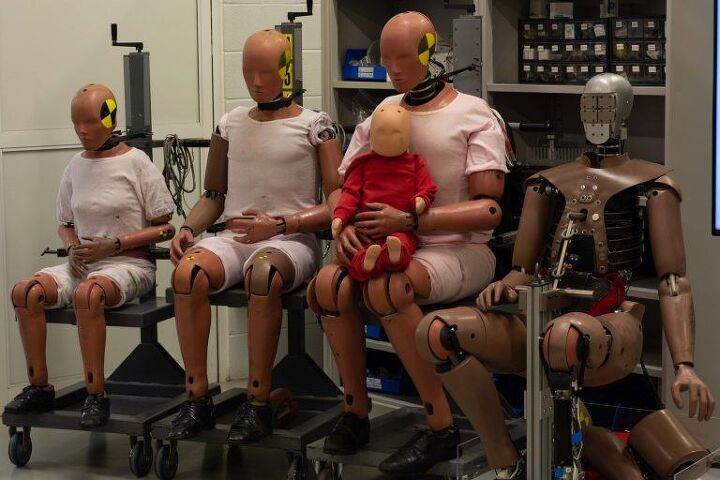



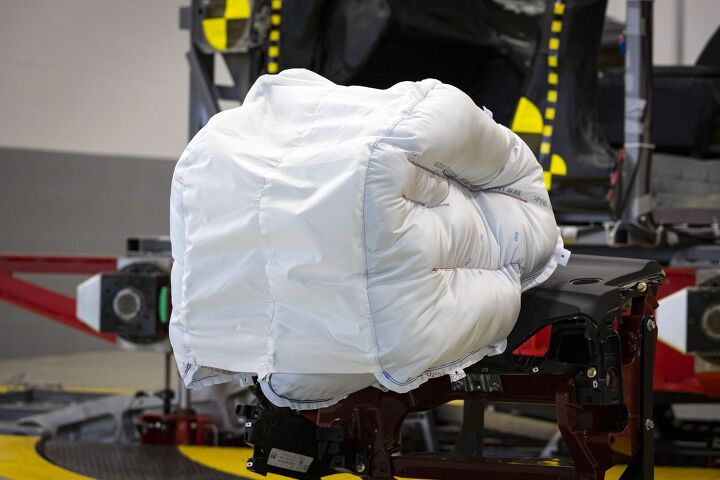


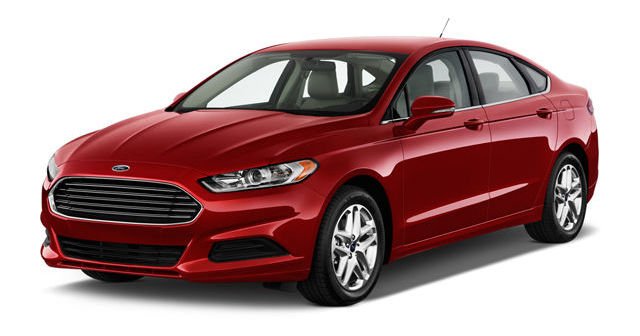

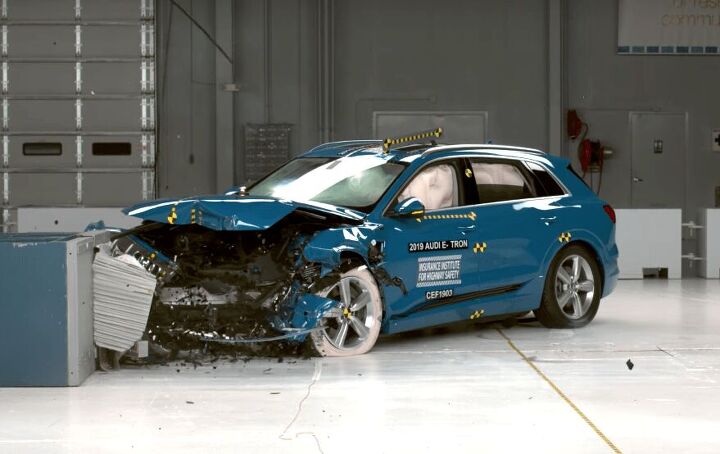

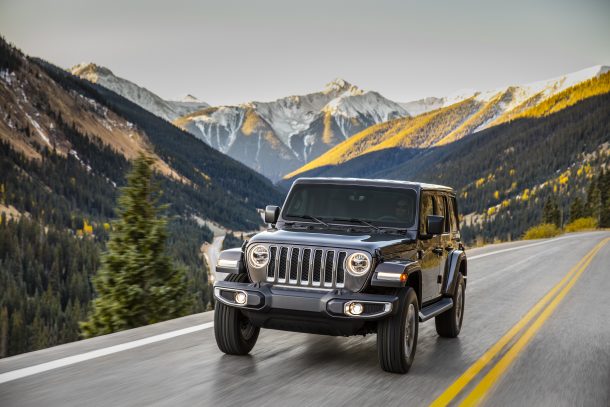

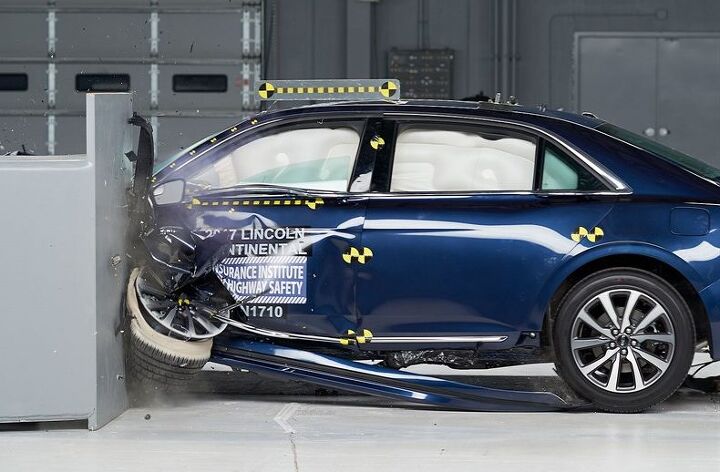













Recent Comments